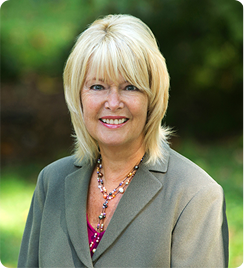
Are you still waiting for your dream career or are you there? You know it when you have it. It may not be perfect, but it feeds your purpose and curiosity. It’s easier to know when you aren’t there. You may have more of the “not there” experiences or ones that started out well, but soured over time.
Perhaps what you wanted at 30 is not what you are wanting today. Your interests have taken a detour along with your priorities. Or you regret never really going after that ideal passion. Instead you’ve worked for financial well being, not to feed your spirit. Is it too late? Will you stay with the familiar? Or is it time for a change?
Many ingredients go into a change, two being readiness and courage. Where you work cannot be too comfortable. There needs to be a reason for change, more than you just want something new. You need to be hungry, willing to risk and curious about answering that call.
Shon Hopwood’s life started off poorly until he found work he was good at and enjoyed. Disinterested in college, Shon fell into robbing banks and served time in prison. There he unexpectedly found a passion and purpose. Eventually Shon worked his way into a career he loves as a Georgetown University Law Professor and a cause he believes in. Shon helps the less fortunate and is committed to reforming criminal sentencing.
In a way Shon fell into a field that was vital to him and his prison community. He learned to improve his life. Now on the outside he continues to help that community and teach law students to do the same.
Think of the areas you are attracted to due to personal or family experiences. A teacher who hated school but wants to improve it for others. A physician whose parent suffered from a chronic illness who wants to heal. A politician who lived in a poor neighborhood who wants to upgrade services for all. An immigrant who began a business and wants to employ newcomers.
What motivates you? What interests you? What are you good at? Every day you are exposed to things that spark your interest and touch your heart. Pay attention. If you stay mired in the same work that no longer serves you, you miss opportunities to charge after something new.
Shon was in a rut and his poor choices landed him in a seemingly hopeless situation. And yet he thrived in the prison library. Soaking up knowledge, writing and helping his colleagues. When he was released, people helped him because they recognized his passions and efforts.
It’s never a waste to work hard and create an meaningful role for yourself. The skills, relationships and experiences gained will asset you in your next chapter. After 15 years Dorothy has risen to management in her organization. She’s noticed for her contributions, but she no longer feels fulfilled. The skills that provide for her financial support don’t excite her anymore. The company’s mission doesn’t touch her heart. She’s feeling stagnant.
But can Dorothy make a change at 55? Is it too late? She can retire in 10 years. Is it best to hold on and wait until then? But what will be different at 65? What will Dorothy design then to have a meaningful life?
“It’s never too late to be what you might have been”
George Eliot
Beginning the inquiry now when you feel the dissatisfaction empowers you toward a solution. Staying stuck is never comfortable. Taking action, any action is an investment in the future.
Dorothy chooses to explore her interests. She notices where her eyes go, how she prefers to spend her time. She finds a theme that repeats, that was nagging her years ago. Sometimes you drop an interest or a talent for good reasons at the time. But now is a new opportunity to pursue something that brings meaning into your life.
Giving yourself permission to create the “just right” life of your dreams is scary. You have been settling for so long, it’s an automatic habit. Defining the direction and ingredients you really want is putting a stake in the ground. Shon knew that convicted felons rarely get a law license, but he went after it anyway. He faced possible failure and won.
You can declare: This is what I want. This is who I am. This is what I believe in. I’m going to do something about it. What if instead of asking, “Is it too late”, you proclaim, “It’s about time”.
Start Now:
Choose this as “your time”
Make your Yes, No, Maybe lists
Find immediate ways to add passion to your day
Hang out with people who share your passions
Take the leap and see you on the path!









